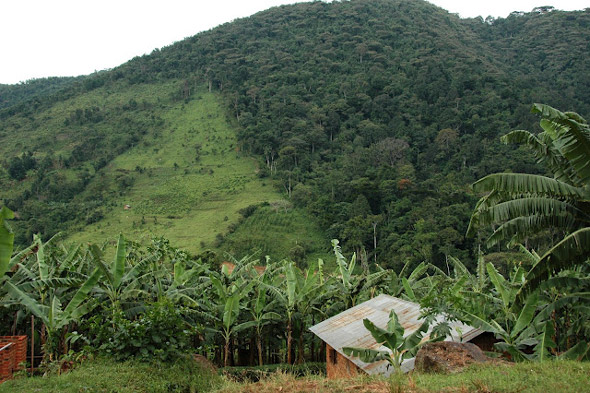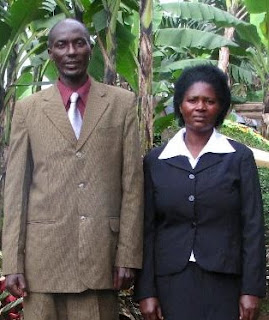-
Sam Rugaba, PHE Champion
Encouraging Childhood Education and Birth Spacing as an Approach to Conservation
March 2, 2011 By Wilson Center StaffThis PHE Champion profile was produced by the BALANCED Project.
Fifty-one-year-old Sam Rugaba is a dedicated teacher who loves his job at the Bujengwe Community Primary School. The school is the result of a community-based project located in the Bujengwe Parish of the Kayonza subcounty in the Kanungu district of Uganda – just 18 kilometers from the Bwindi Impenetrable National Park (BINP). The biodiversity-rich BINP is home to many rare species including the endangered mountain gorilla. Sam is also a Conservation Through Public Health(CTPH) community volunteer and community conservation health worker.Sam and his wife, Sadrace, have 10 children – 5 boys and 5 girls. They have managed to raise these 10 children in part because of the large plot of land given to Sam by his father. Today, however, even that land is turning out to be not enough. Used for years to plant tea trees, the land is now infertile from the use of pesticides. Added to this is the fact that the BINP – which when Sam was a child was a game reserve where the community was free to collect timber and food – is now a protected area, where such activities are illegal.
Today, having very large families and depending on farming the land and the forest makes life difficult. “Children should, therefore, be able to go to school,” argues Sam. He realizes that without family planning, it will be hard, if not impossible, for parents to afford to send their children to school. Yet, young people without an education will likely become young people without jobs. This could drive them to the protected forests to illegally trap animals for food and cut timber for fuel and to build houses. In contrast, those with smaller families will have a better chance of educating their children, and in turn, providing them a better chance to secure a job or profession.Helping his community understand some of these changing realities is part of Sam’s role as a community conservation health worker (CCHW). Sam began volunteering as a CCHW when his community selected him to represent them in the CTPH population, health, and environment (PHE) program because of his respect in the community, trustworthiness, and good communication skills. He works through house-to-house visits, community groups associations, and his church to talk to households about the benefits of actively choosing and planning the size of their families, emphasizing that what worked in the past – very large families dependent on the environment for their livelihood and food – does not always work well today. As Sam shares family planning information with couples, households, and other community members, he also talks about the role that sanitation and hygiene play in their personal health and that of the environment, about the impacts of increasing population on natural resources, and about the role each of us can play as stewards of our environment.
Sam is encouraged by his and others’ PHE efforts. This includes witnessing an increasing number of people in his community who are changing their attitude about family planning and the approximate 60 percent of women in their reproductive age who have accepted modern methods of family planning. In Sam’s words, “people give birth to fewer children, unlike the way I did, and are more likely to send their children to school to make them useful people in the community. Through our community sensitization about population, health, and the environment, people understand the importance of things like gorilla conservation. People understand that managing the size of their families can help save the environment.”
This PHE Champion profile was produced by the BALANCED Project. A PDF version can be downloaded from the PHE Toolkit. PHE Champion profiles highlight people working on the ground to improve health and conservation in areas where biodiversity is critically endangered.
Photo Credit: “Border of the Bwindi Impenetrable National Park forest,” courtesy of Katie Losey, and “CCHW, Mr. Sam Rugaba, with wife Sandrace,” courtesy of CTPH.
 A Publication of the Stimson Center.
A Publication of the Stimson Center.





